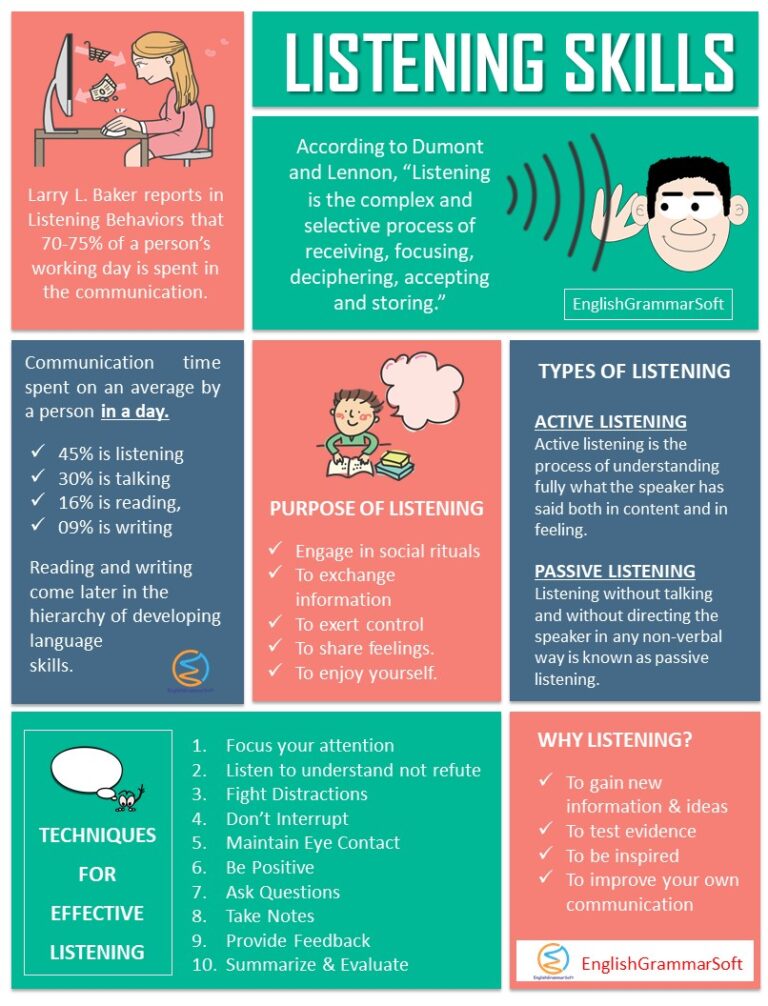

Mental health challenges, like all physical health conditions, have their own specific set of symptoms that show up during challenging seasons. Embodied approaches to supervision: The listening body, by Céline Butté and Tasha Colbert, London, Routledge, 2023, 180 pp., £26.99 (paperback), £120.00 (hardback), £24.29 (ebook). Hear with your heart, learn what to look for.There are four stages to listening: receiving, understanding, evaluating, and responding. Body language is important when conveying that you are listening to someone. Instead, it requires taking a moment to step outside of our normal patterns of thinking and feeling to imagine what it feels like to be the person in front of us. There are 7 types of listening skills: informational, discriminative, biased, sympathetic, comprehensive, therapeutic, and critical. For a person experiencing a mental health problem, having an empathetic listener can be calming and reassuring – even healing.Įmpathy, unlike sympathy, does not mean we agree with the other person or see things from the same point of view. Listening with the intention to understand another.įor situations where someone is experiencing symptoms of a mental health crisis, there is another kind of listening that can be more effective: empathetic listening. Non-judgmental Listening (Listening to Understand or Empathize) Informational listening focuses more on the logic and critical thinking of what someone else is saying and less on the emotional aspect of it. As an active listener, we often listen to respond. This is the type of listening we use when we’re learning something new, especially something that’s important to us. One of the most common forms of listening we come across, active listening usually includes engaging and responding while listening. Listening and responding to another person to improve mutual understanding. The focus of informational listening is taking in new facts and being receptive to new information.

Whenever you listen to learn something, you are engaged in informational listening. Learn about the definition of informational listening, listening skills, and informational listening. Listening to learn something new or unfamiliar. Informational Listening (Listening to Learn) Here are 4 ways you can make a difference through your power of listening. Informational listening is listening with the goal of learning, understanding, and grasping information.

Many of us forget that we all possess one of the most effective tools to aid someone experiencing a mental health crisis: Listening.


 0 kommentar(er)
0 kommentar(er)
